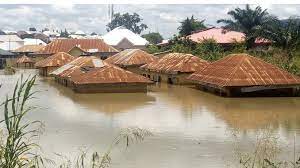
In the next few months, I would have written this weekly column for five years. I will also be turning 85 years old on this wonderful planet that I care so much for which has given me so much education in knowing and understanding nature, and the only planet in the whole universe that has life. I have also, had the opportunity to explore almost the length and breadth of the biggest desert in the world and have also visited some other deserts like the Gobi Desert in China, the Nevada and Arizona Deserts in the USA, the Negev Desert in Israel and the Kalahari Desert in Namibia so as to study the application of approaches in handling the desert as was detailed in my book “Bridging the Sahara” published over two decades ago. All these explorations exposed me to the fragility of our planet earth. The study and the understanding that goes to the three most important elements of life; the water that we drink, the food that we eat and the air that we breathe are not available on other planets.
So, as we celebrate many different events, be them religious events, traditional events, and political events, I must share my worries and fear about the challenges that are likely to alter the relative peace, the ecosystem, the biodiversity and the likely attempt to begin a process of rewriting history and redrawing the maps of the world. Instead of combating Climate Change through resource efficiency, we are annexing nations. Yet as we drag our feet and focus on interests that won’t matter in chaos, some nations are coming underwater, and others are been taken over by fire, earthquakes, hurricanes and desertification. The threat is not just from nature, nations are facing ethnic/racial wars due to the introduction or re-introduction of certain religious, social and economic doctrines and policies. Also, massive corruption has crippled economies leaving wallets and stomachs empty.
It has become, therefore, clear to me as was mentioned in my previous articles that there are some unexplainable crises that have befallen us in the last few decades that must be seen as a wake-up call. Not too long ago, I attended a stakeholder’s forum on Combating Climate Change in Abuja and I was introduced as THE MAN WHO SAW THE FUTURE. I was not too comfortable with such a title but was able to understand the thinking behind the title because for over 50 years I have predicted the climate change crisis that is with us today. I also predicted the conflict and wars that are likely to follow the migration directly/indirectly caused by the changing climate and also predicted the political religion that is tearing nations apart. I also foresaw the herdsmen crisis that is now causing colonies to develop. I can’t see the future but with the power of objective observation and scientific analysis, one can easily gather data, follow patterns and deduce potential results with predictable future consequences. Following the patterns, led me to worry about the number of countries now in possession of nuclear weapons. It will only require a little spark to plunge the whole world into a nuclear war and if it happens, there will be nothing left of the planet as we know it, all that would be left would be dust and water.
It is important to reiterate that the consequences of climate change will not be limited to food insecurity, reduced crop yields, increased migration, and dramatic damage to coastal communities. We must understand that climate change simply means when the climate is overheated; it brings with it intense heat waves, bushfires, and turning the farmland into dust, thereby resulting in food scarcity. The overheating of the climate also leads to the torrential downpour of rain which brings about gully erosion. The sea level rises because of the warming, and when that happens, the lowland islands disappear like the event in the Ayetoro region of Ondo State, areas in Delta state including the capital, Asaba and a good part of Lokoja. On the global scene, recently, Pakistan also lost a third of the nation to floods, as well as Florida and parts of China.
Climate change, therefore, is no longer a debate for distant nations. It has affected the herdsmen, and their business of animal husbandry, and driven them away from their open space natural areas to urban areas which they never wanted. Climate change is threatening underground water resources and making them acidic. It is also causing farming communities all over the country to change their farming calendar. That alone will bring about food security issues and a serious threat to the security of the nation if this trend is allowed to continue.
Again, let it be understood that climate change is no longer a debate for the white man and the western world. Only fools will even still consider it a topic of debate. Climate change is not being taken seriously and that will lead to some consequences only when we all come to realise this, can we begin to take the necessary steps to survive it. A pity we are still talking about survival when other countries are thriving and developing a culture of mitigation and adaptation and with the early warning system made available by science, nations are also able to prepare their citizens beforehand. Some will build barricades and some will have a place to be evacuated to, here in Nigeria and in most African countries, we do not have that luxury.
As one of the very few in the world that have traversed the planet and have experienced bad governments, different religions, and tribal and ethnic crises, I would take my readers once again back to some articles that I have written that touch on some of the issues and how best to deal with them. In the coming weeks, I would profile the articles of yesteryears in relation to the happenings of today.